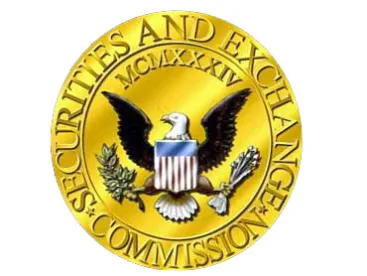A recent SEC enforcement action against a private equity firm highlights issues identified in a recent speech by the Director of the Securities and Exchange Commission's (SEC) Division of Enforcement[1] as well as an issue dormant in recent years—the potential need for private equity firms to register as broker-dealers.
The Broker-Dealer Registration Issue
On June 1, the SEC filed a settled enforcement action against a private equity firm and its principal alleging, among other things, that the firm improperly operated as a broker-dealer without being registered. According to the SEC Order:
Although the L[imited] P[artnership] A[greement]s expressly permitted BCM [the adviser] to charge transaction or brokerage fees, BCM has never been registered with the Commission as a broker nor has it ever been affiliated with a registered broker. Rather than employing investment banks or broker-dealers to provide brokerage services with respect to the acquisition and disposition of portfolio companies, some of which involved the purchase or sale of securities, BCM performed these services in-house, including soliciting deals, identifying buyers or sellers, negotiating and structuring transactions, arranging financing, and executing the transactions. BCM received at least $1,877,000 in transaction-based compensation in connection with providing these brokerage services.[2]
In the press release announcing this action, the SEC observed that:
An SEC investigation found that Blackstreet Capital Management and Murry N. Gunty performed in-house brokerage services rather than using investment banks or broker-dealers to handle the acquisition and disposition of portfolio companies for a pair of private equity funds they advise. Blackstreet fully disclosed to its funds and their investors that it would provide brokerage services in exchange for a fee, yet the firm failed to comply with the registration requirements to operate as a broker-dealer.[3]
The penalty for this conduct was harsh: more than $3 million in fines, interest and disgorgement.
There appear to have been three reasons why the SEC found the need for broker-dealer registration. First, the firm allegedly disclosed to its investors that it would provide brokerage services for a fee. Second, the adviser allegedly performed the following services, which are characteristic of brokerage activity: "soliciting deals, identifying buyers or sellers, negotiating and structuring transactions, arranging financing, and executing the transactions." Third, the adviser allegedly received transaction-based compensation for performing these services.
Background on the Broker-Dealer Registration Issue
Private equity firms focused on the issue of whether their activities triggered the need for broker-dealer registration when, on April 5, 2013, David Blass, then chief counsel in the SEC's Division of Trading and Markets, delivered a speech addressing the subject.4Mr. Blass's speech focused on the potential need for broker-dealer registration when finders are used to help raise money for a fund. The speech also highlighted the M&A activities of private equity firms, observing that this activity may also trigger the need for broker-dealer registration:
[t]he staff has observed that advisers to some funds—for example, advisers to private equity funds executing a leverage buyout strategy—may also collect many other fees in addition to advisory fees, some of which call into question whether those advisers are engaging in activities that require broker-dealer registration. Examples include fees the manager directs a portfolio company of the fund to pay directly or indirectly to the adviser or one of its affiliates in connection with the acquisition or disposition (including an initial public offering) of a portfolio company or a recapitalization of the portfolio company. The fees are described as compensating the private fund adviser or its affiliates or personnel for "investment banking activity," including negotiating transactions, identifying and soliciting purchasers or sellers of the securities of the company, or structuring transactions. Looking back to the earlier analysis of what makes one a broker, this practice appears to involve transaction-based compensation that is linked to the manager effecting a securities transaction. The combination of success fees which cause the adviser to take on a salesman's stake and the activities involved in effecting securities transactions appear, at least on their face, to cause such an adviser to fall within the meaning of the term "broker."
Mr. Blass also noted that "[t]o the extent the advisory fee is wholly reduced or offset by the amount of the transaction fee, one might view the fee as another way to pay the advisory fee, which, in my view, in itself would not appear to raise broker-dealer registration concerns."
Mr. Blass's speech was followed by a series of inspections by the SEC urging private equity firms to consider the need for broker-dealer registration.
Subsequently, in an unpublished speech on September 26, 2013, Mr. Blass was perceived to have softened his position on the need for broker-dealer registration because of private equity deal activities.5
On January 31, 2014, in what was widely viewed as a retreat from the focus on broker-dealer issues within the private equity industry, the SEC issued an important no-action letter on this issue.[6] In this no-action letter, the SEC granted relief from the need for broker-dealer registration where a firm assists in the sale of a private company. Even though the firm would advise the parties on the transaction, participate in the negotiation of the transaction, and receive transaction-based compensation for these efforts, broker-dealer registration was not required. However, this relief was conditioned on numerous factors, including that the transaction involve a change in control of a private company, that the firm not have custody control possession of or handle securities issued or exchanged in connection with the transaction, that the firm not be permitted to bind a party to a transaction, that the firm not help form the buying group, that the firm not help finance the transaction, and that the buyers actively manage the acquired company after the transaction. While the conditions imposed in the no-action letter were extensive, the fact that the receipt of transaction-based compensation was not viewed as triggering the need for broker-dealer registration was viewed as particularly significant.
Renewed Concern Because of the Recent SEC Enforcement Action
After the issuance of the M&A Broker's no-action letter, many perceived that the SEC had broadly retreated from the issues raised in Mr. Blass's 2013 speech. Although the numerous conditions imposed in the M&A Broker's no-action letter rendered it of limited precedential value, many commentators saw it as signaling a broad license to the private equity industry to engage in brokerage activities without a brokerage license. Others, however, saw the no-action letter as doing little more than create parity in the treatment of asset sales and stock sales of private companies.
The recent SEC enforcement action will reopen that debate. In particular, that enforcement action seems to restore the previously perceived supremacy of the receipt of transaction-based compensation as a defining hallmark of broker-dealer activity.
Other Lessons From the SEC Enforcement Action
The May 12 speech by the Director of the Division of Enforcement highlighted three current issues in enforcement actions against private equity firms:
-
advisers that receive undisclosed fees and expenses;
-
advisers that impermissibly shift and misallocate expenses; and
-
advisers that fail to adequately disclose conflicts of interests, including conflicts arising from fee and expense issues.
The recent SEC enforcement action provides interesting glosses on these priorities. For example, the adviser was sanctioned for improperly paying certain entertainment expenses and political and charitable contributions with fund assets. These payments were sanctioned even though the adviser disclosed these payments to the investors, but only after investors had committed their capital and therefore after they could take any action if they objected to these payments; the offering documents "did not expressly authorize" the payment of these expenses. The adviser also was sanctioned because it "did not adequately track or maintain records of whether entertainment expenses were for business or personal use," even though there is no explicit record-keeping requirement relating to keeping such records.
[1] "Private Equity Enforcement" (May 12, 2016).
[2] In re Blackstreet Capital Management LLC, Admin. Pro. 3-17267 (June 21, 2016).
[3] Press Rel. 2106-100.
[4] "A Few Observations on the Private Equity Space,".
[5] Information on Mr. Blass's speech .
[6] M&A Brokers, SEC no-action letter (pub. avail. Jan. 31, 2014).




 />i
/>i

